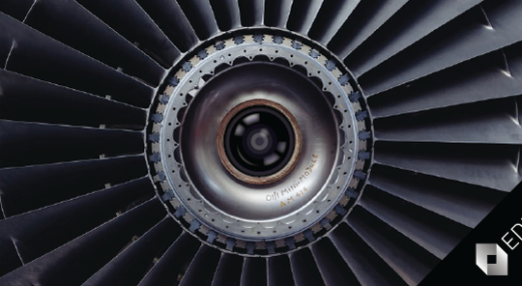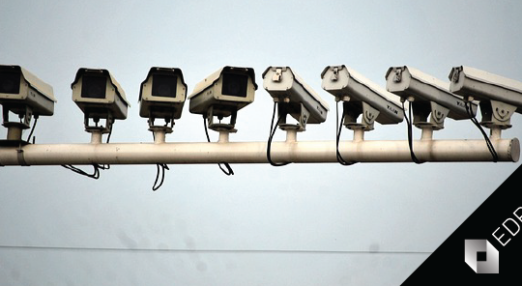mass surveillance
Filter by...
-

Why EU passenger surveillance fails its purpose
The EU Directive imposing the collection of flyers’ information (Passenger Name Record, PNR) was adopted in April 2016, the same day as the General Data Protection Regulation (GDPR). The collection of PNR data from all flights going in and out of Brussels has a strong impact on the right of privacy of individuals and it […]
Read more
-

EU worries over the possibility of losing wiretapping powers
5G telecoms networks could render obsolete the “lawful interception” techniques that police is traditionally using, unless the European Union and national governments take action. This was revealed in internal EU documents obtained by EDRi member Statewatch, that has published a new analysis explaining the issues and calling for a public debate. “It is unsurprising that […]
Read more
-

Passenger surveillance brought before courts in Germany and Austria
EDRi members Gesellschaft für Freiheitsrechte (GFF, Society for Civil Rights) and Epicenter.works have taken legal action against the mass retention and processing of Passenger Name Records (PNR) before German and Austrian courts and authorities. The European PNR Directive (Directive 2016/681) requires airlines to automatically transfer their passengers’ data to state authorities. There, the data are […]
Read more
-

NGOs urge Austrian Council Presidency to finalise e-Privacy reform
EDRi member epicenter.works, together with 20 NGOs, is urging the Austrian Presidency of the Council of the European Union to take action towards ensuring the finalisation of the e-Privacy reform. The group, counting the biggest civil society organisations in Austria such as Amnesty International and two labour unions, demands in an open letter sent on 6 November 2018 an end to the apparently never-ending deliberations between the EU member states.
Read more
-

ECtHR gives a half-hearted victory against UK mass surveillance
On 13 September 2018, the European Court of Human Rights (ECtHR) delivered its ruling on the case brought by EDRi members Privacy International, Open Rights Group and other NGOs against the United Kingdom. The Court found several violations of the European Convention on Human Rights in three UK mass surveillance programmes. The Court’s judgment is […]
Read more
-

UN Security Council mandates worldwide air traveller profiling
In the name of “preventing, detecting and investigating terrorist offenses and related travel”, all United Nations (UN) Member States should develop systems for processing and analysing Passenger Name Record (PNR), Advance Passenger Information (API) and “fingerprints, photographs, facial recognition, and other relevant identifying biometric data”, according to a UN Security Council resolution (no. 2396) on […]
Read more
-

Who defends the victims of mass surveillance? Tech companies could
Two clocks are ticking for US tech companies in the power centers of the modern world. In Washington, lawmakers are working to reform the Foreign Intelligence Surveillance Act (FISA) Section 702 before it expires on 31 December 2017. Section 702 is the main legal basis for US mass surveillance, including the programs and techniques that […]
Read more
-

Denmark: Targeted ANPR data retention turned into mass surveillance
Since mid 2016, Denmark has a nationwide automatic number plate recognition (ANPR) system with stationary cameras at 24 locations and mobile cameras mounted on 48 police cars. The ANPR system is currently being integrated with POL-INTEL, the new Danish system for intelligence-led policing (predictive policing), which is supplied by Palantir Technologies. Expansion of the ANPR […]
Read more
-

Dutch Senate votes in favour of dragnet surveillance powers
On 11 July 2017, the Dutch Senate passed the bill for the new Intelligence and Security Services Act. With the Senate vote, a years-long political battle has come to an end: the secret services have been given dragnet surveillance powers.
Read more
-

Dutch House of Representatives passes dragnet surveillance bill
On 14 February 2017 the bill for the new Intelligence and Security Services Act was passed by the Dutch lower house. Despite being met with serious opposition from experts, regulators, civil society, political parties, and citizens, the revised bill passed virtually unchanged from the proposal submitted to the lower house. It’s beyond disappointing that a […]
Read more
-

CETA puts the protection of our privacy and personal data at risk
We are constantly sharing parts of our lives on the internet. We feel free to do this because we believe that we can still preserve some privacy and remain in control of what we share. Governments have a moral and legal duty to protect our privacy, prevent abuses and preserve a climate of trust. This […]
Read more
-

Secret Report: German intelligence service BND breaks the law
The German intelligence service BND illegally collected and stored mass surveillance data and has to delete those data immediately. This is one of the conclusions of a classified report of the German Federal Data Protection Commissioner that German digital rights blog Netzpolitik.org published. In her report, the Commissioner criticises serious legal violations and a massive […]
Read more
